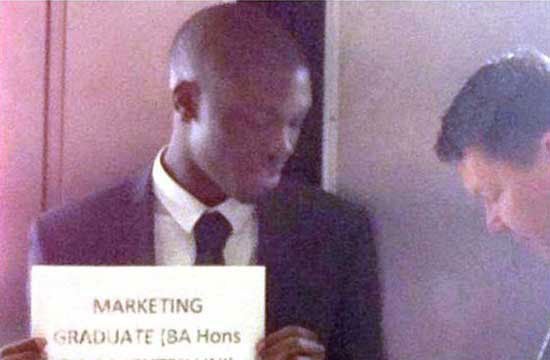It's vital that we teach young people how to write a proper CV
Many employers have horror stories to tell

Your support helps us to tell the story
From reproductive rights to climate change to Big Tech, The Independent is on the ground when the story is developing. Whether it's investigating the financials of Elon Musk's pro-Trump PAC or producing our latest documentary, 'The A Word', which shines a light on the American women fighting for reproductive rights, we know how important it is to parse out the facts from the messaging.
At such a critical moment in US history, we need reporters on the ground. Your donation allows us to keep sending journalists to speak to both sides of the story.
The Independent is trusted by Americans across the entire political spectrum. And unlike many other quality news outlets, we choose not to lock Americans out of our reporting and analysis with paywalls. We believe quality journalism should be available to everyone, paid for by those who can afford it.
Your support makes all the difference.Alfred Ajani is an enterprising 22-year-old graduate whose job search took on an inventive turn after months of rejection by employers. Ajani stood in Waterloo Station holding a sandwich board advertising his degree results - and received a string of job interviews as a result.
As his story demonstrates, jobseekers can send off hundreds of job application letters with absolutely no reply. This summer, millions of school-leavers and graduates have gained a smorgasbord of GCSE, A-level and degree results. Depressingly, despite their academic success, a lot of these bright young people are headed straight for unemployment. The barrier between these candidates and paid work is not a lack of qualifications. It’s often because they don’t know how to apply for a job effectively.
We can’t blame candidates for this. In many cases they’ve never been taught how to write a job application letter or format a CV. This is bananas. Writing a job application letter and CV are essential life skills. Without them, you’ll struggle to earn a living. With them, you’ve got a better chance at starting and sustaining a career. So why aren’t we teaching all students what to do?
Many employers will tell you about the ridiculousness of the cover letters and CVs they receive. They contain the wrong information, or missing information, or too much information, or spelling mistakes, or scant evidence that the applicant could actually do the job. In real life, that person might be quite capable, but they fail to transmit that in writing.
On the other hand, well-written CVs stand out so much that they can convince employers that they’re staring at someone they need, not just want, to hire. With competition for jobs as fierce as it is, that’s how you’ve got to make a prospective boss feel. Research released this week shows that a third of employers don’t bother to check the qualifications stated on candidates’ CVs. That’s disturbing, but it does prove how much a good CV and cover letter can do.
Let’s teach candidates a uniform, effective way of setting out a CV and covering letter – something guided by real-life employers, so we know we’re teaching young people an approach that will work. Then we won’t have to force them to go out with sandwich boards in order to get a start in life.
Join our commenting forum
Join thought-provoking conversations, follow other Independent readers and see their replies
Comments